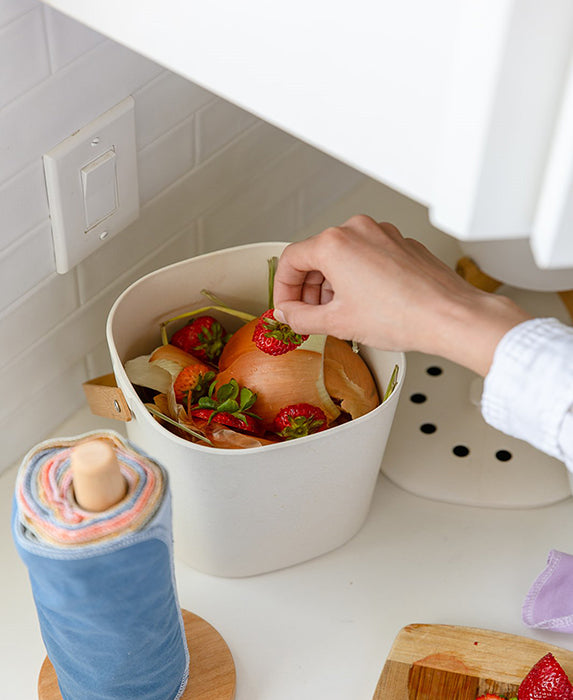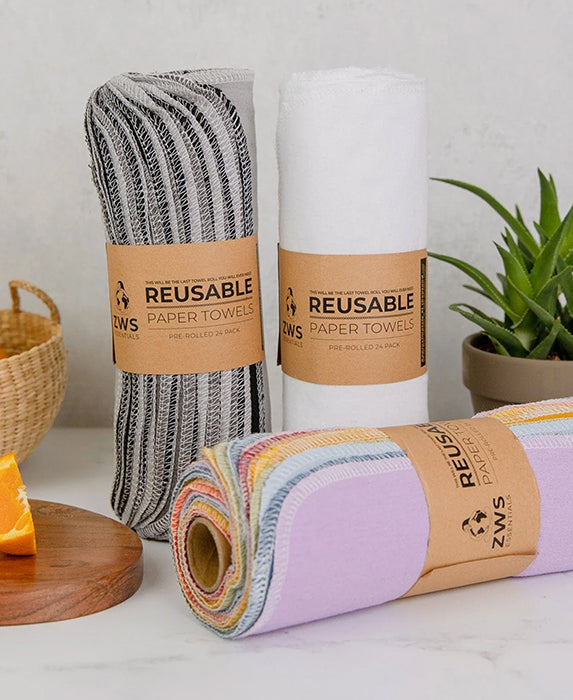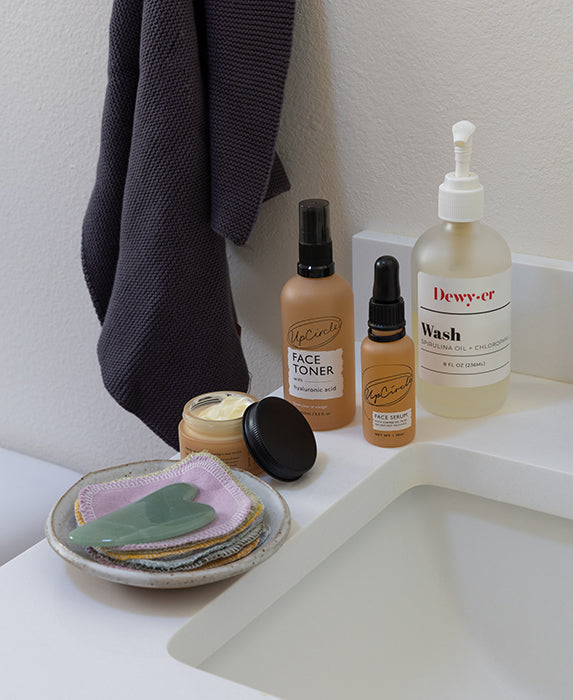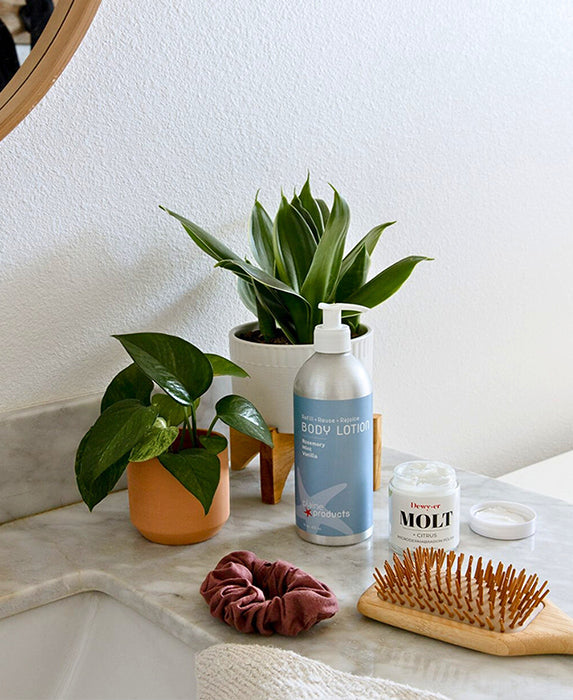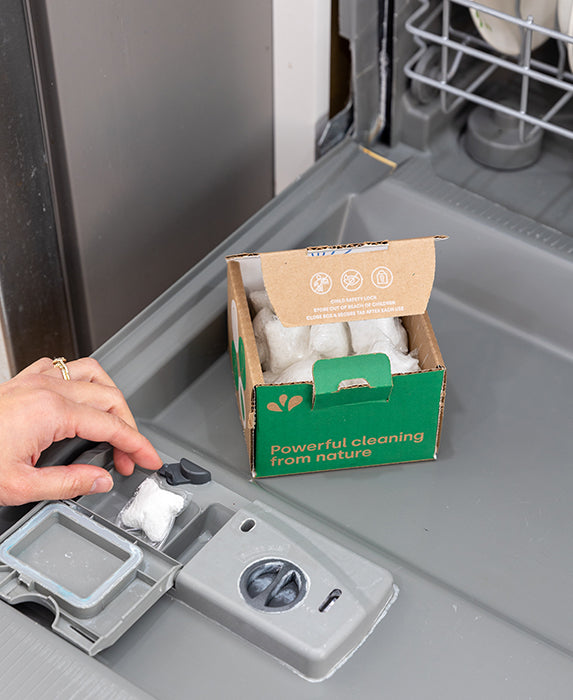From family picnics to backyard clean-ups, eco-friendly swaps are becoming a part of daily life, but terms like “biodegradable” and “compostable” can still cause confusion.
At EarthHero, we believe sustainable living should feel simple, supportive, and doable for everyone. In this guide, we’ll break down these two buzzwords in plain language, so you can shop with confidence.
TL;DR: Biodegradable vs. Compostable
Both biodegradable and compostable materials break down naturally, but compostable items are designed to decompose under specific conditions into safe, nutrient-rich matter.
Biodegradable materials will eventually break down too, but may take much longer and sometimes leave behind residue.
What Does “Biodegradable” Mean?
When something is biodegradable, it means that microorganisms like bacteria and fungi can break it down into smaller pieces over time. This can happen in soil, water, or other natural environments.
Biodegradable products can be made from plant-based, animal-based, or even synthetic materials.
The key point? There’s no set timeline for when they break down. It could be weeks, years, or decades.
And some biodegradable items can still leave behind microplastics or other residues that aren’t great for the planet, so be extra sure to check the ingredients.
EarthHero Examples:
- Terra Ties Elastic Biodegradable Hair Ties is a plant-based, biodegradable swap for synthetic hair ties.
- Natural & Biodegradable Skin Renewal Tonic is formulated with natural ingredients that break down safely.
- Eco Glitter is a biodegradable glitter made from plant cellulose, not plastic.
What Does “Compostable” Mean?
Compostable products are made from natural materials that break down into nutrient-rich compost under specific conditions.
Composting is a controlled process — the right combination of heat, moisture, and oxygen — that turns organic matter into a soil-like substance that can enrich gardens and plants.
Unlike biodegradable items, compostable products must meet certain standards to ensure they break down within a set timeframe and leave no toxic residue behind.
EarthHero Examples:
- Compostable Pet Waste Bags is a compostable alternative for pet clean-up.
- Compostable Paper Snack Bags are perfect for lunchboxes and snacks on the go.
- All Natural Lip Balm has vegan and organic options, in a 100% home-compostable tube.
Quick Comparison: Biodegradable vs Compostable
|
Feature |
Biodegradable |
Compostable |
|
Breakdown process |
Microorganisms naturally break it down |
Microorganisms break it down in controlled compost conditions |
|
Timeframe |
Varies — weeks to decades |
Typically 90–180 days (under correct conditions) |
|
Residue |
May leave microplastics or toxins |
Leaves no toxic residue, produces compost |
|
Standards |
No universal standard |
Must be certified for compostability; standards vary by product type |
|
Best disposal method |
Landfill, soil, or compost if appropriate |
Commercial or home compost system |
Common Misconceptions
Some products are marketed as “biodegradable” but aren’t compostable, and vice versa. Here are a few common examples:
Biodegradable but not compostable
Some plastics labeled “biodegradable” will break down eventually but won’t turn into compost and may release microplastics.
Compostable but not biodegradable in nature
Many certified compostable plastics need high heat from industrial composting to break down properly. They won’t decompose quickly if littered.
Certifications to Look For (US)
For compostable products:
-
ASTM D6400 / D6868 – US standards for compostable plastics and coatings.
-
BPI Certified Compostable – Ensures a product meets strict compostability guidelines.
For biodegradable products:
-
There’s no single certification, but look for products that disclose materials and testing, and choose brands committed to full environmental responsibility.
EarthHero Picks: Biodegradable & Compostable Products
Here are some favorite products we carry, and whether they’re biodegradable or compostable:
-
Terra Ties Elastic Biodegradable Hair Ties – Biodegradable
-
Natural & Biodegradable Skin Renewal Tonic – Biodegradable
-
Eco Glitter – Biodegradable
-
Macchiato Brown Organic Hair Scrunchies – Biodegradable
-
BioBag Compostable Resealable Sandwich Bags – Compostable
-
Compostable Pet Waste Bags – Compostable
-
Compostable Paper Snack Bags – Compostable
-
Patch Coconut Oil Bamboo Bandages – Compostable
Biodegradable vs. Compostable: Final Thoughts
Choosing between biodegradable vs compostable comes down to understanding where and how you’ll dispose of the item.
Compostable products are the better option if you have access to composting facilities (or a home compost), while biodegradable options are still a step up from conventional plastic when composting isn’t available.
Whichever you choose, each mindful swap helps lighten your footprint and move us all toward a healthier planet, and we’re here to support you every step of the way.

